Study in fig. and answer the following questions accordingly. Neglect all friction and masses of the pulleys.

What is the acceleration of block B?
30/77ms−2
60/77ms−2
80/77ms−2
120/77ms−2
The correct Answer is:D
From constraint relation , we can see that
2TXB=2TXA
XA=32XB⇒aA=32aB
So let aB=a then aA=1.5a
Writing equation of motion :
From block A,
2T=70aA=105a=3×35a
35a=23T..(i)
From block B,
300−3T=35aB=35a ..(ii)
solving eqs. (i) and (ii) we get
300−3T=2T3⇒900−9T=2T⇒900=11T
T=90011N
aA=18077ms−2andaB=12077ms2.
Topper's Solved these Questions
- NEWTON'S LAWS OF MOTION 1Book:CENGAGE PHYSICSChapter:NEWTON'S LAWS OF MOTION 1Exercise:Integer
Explore 5 Videos
- NEWTON'S LAWS OF MOTION 1Book:CENGAGE PHYSICSChapter:NEWTON'S LAWS OF MOTION 1Exercise:Assertion-reasoning
Explore 15 Videos
- MISCELLANEOUS VOLUME 2Book:CENGAGE PHYSICSChapter:MISCELLANEOUS VOLUME 2Exercise:INTEGER_TYPE
Explore 10 Videos
- NEWTON'S LAWS OF MOTION 2Book:CENGAGE PHYSICSChapter:NEWTON'S LAWS OF MOTION 2Exercise:Integer type
Explore 1 Video
Similar Questions
When we ignore friction and mass of pulley what would be the accelerations of the two blocks m1 and m2
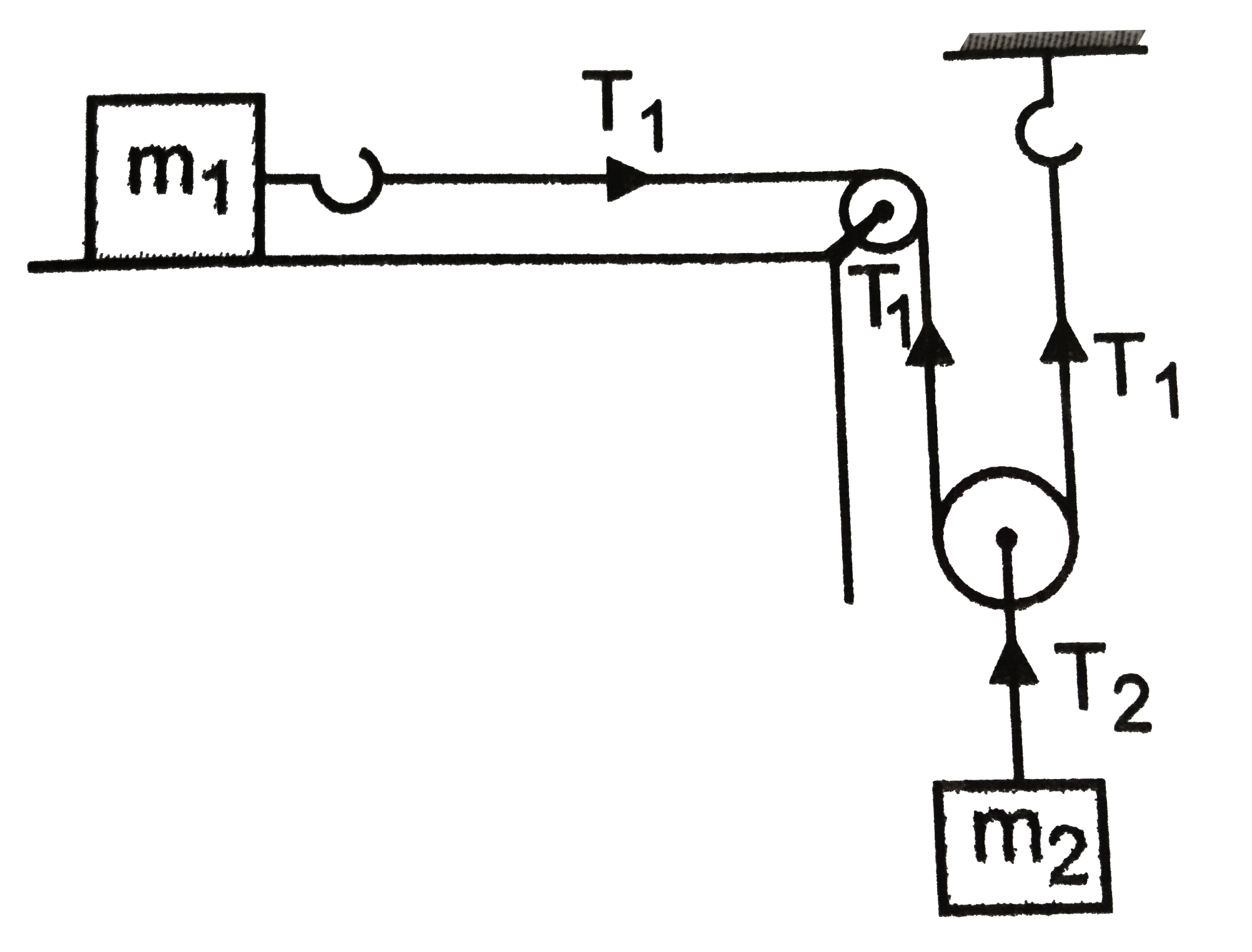 .
.
View SolutionTwo block of masses m1 and m2 are in equilibrium. The block m2 hangs from a fixed smooth pulley by an inextensible string that is fitted with a light spring of stiffness k as shown in fig. Neglecting friction and mass of the string, find the acceleration of the bodies just after the string S is cut.
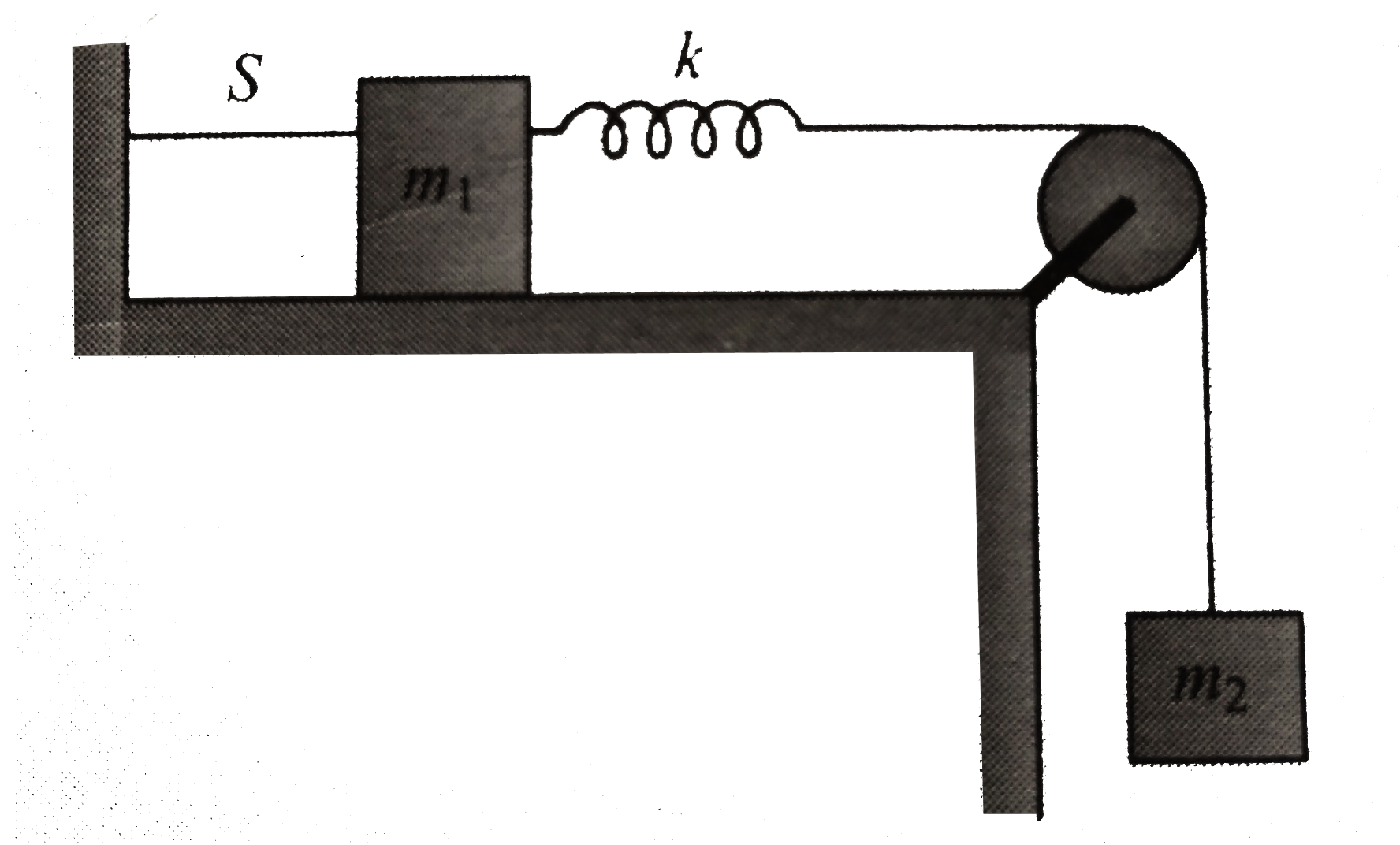
View Solution
Knowledge Check
Study in fig. and answer the following questions accordingly. Neglect all friction and masses of the pulleys.

What is the acceleration of Block A?A60/77ms−2B80/77ms−2C180/77ms−2D60/77ms−2Study in fig. and answer the following questions accordingly. Neglect all friction and masses of the pulleys.

What is the tension in the string?A70011NB45011NC50011ND90011NIn the figure shown neglecting friction and mass of pulley, what is the acceleration of mass B ?
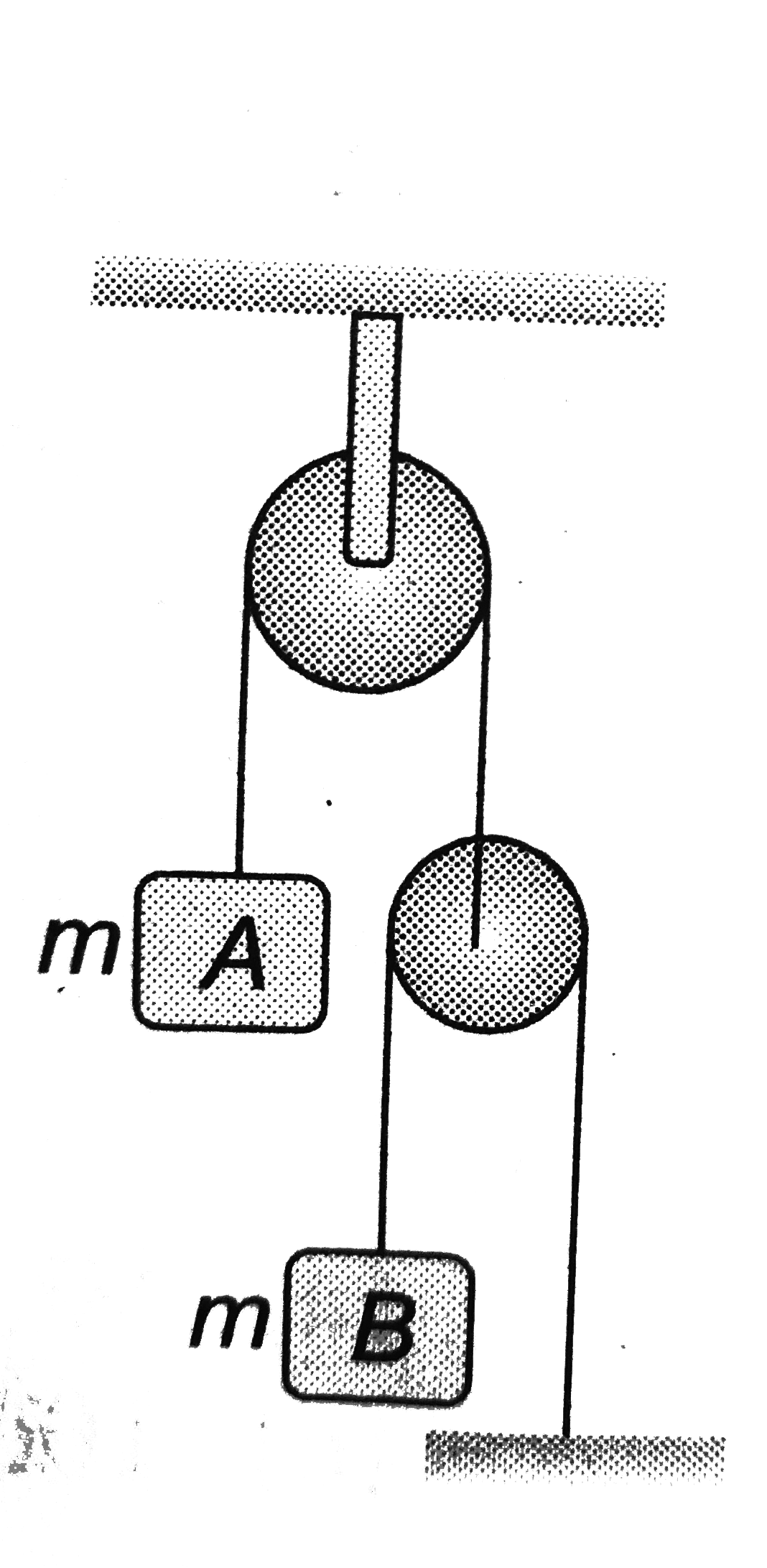 Ag3B5g2C2g2D2g5
Ag3B5g2C2g2D2g5
Study the following data carefully and answer the questions accordingly. The following codes are used:
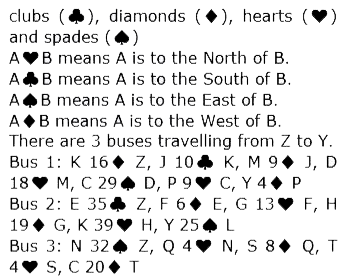
What is the distance between D & T?
View SolutionIn the arrangement shown in fig neglect the masses of pulleys and string and also friction Calculate acceleration of blocks A and B
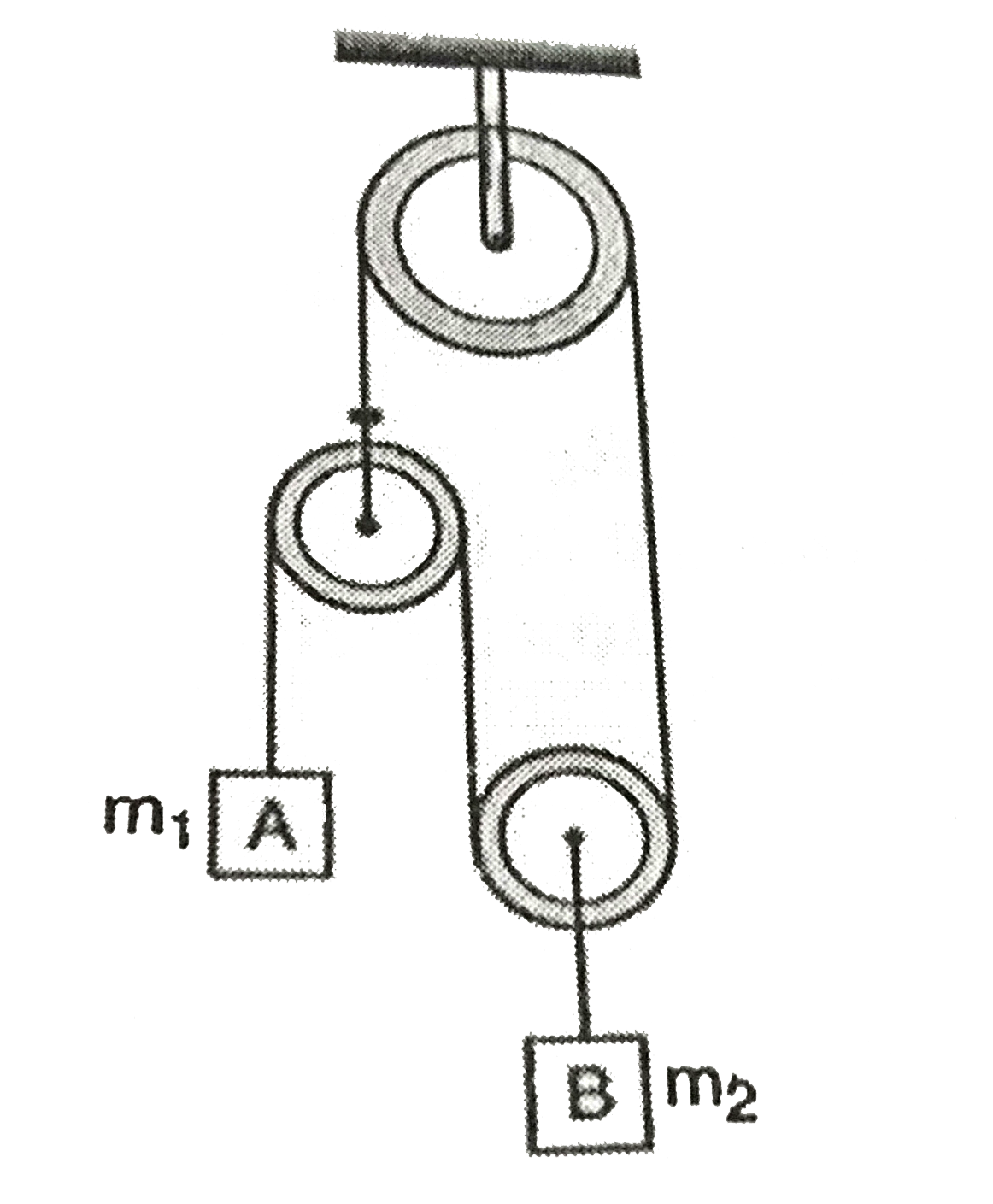
View SolutionStudy the following data carefully and answer the questions accordingly. The following codes are used:
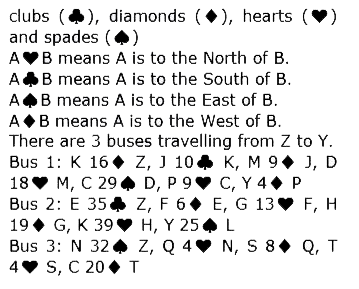
What is the direction of H with respect to M?
View SolutionNeglecting friction and the mass of the pulleys, find the acceleration of the mass Q assuming that P=Q (Figure 5.20).
View SolutionIf the string & all the pulleys are ideal, acceleration of mass m is :-
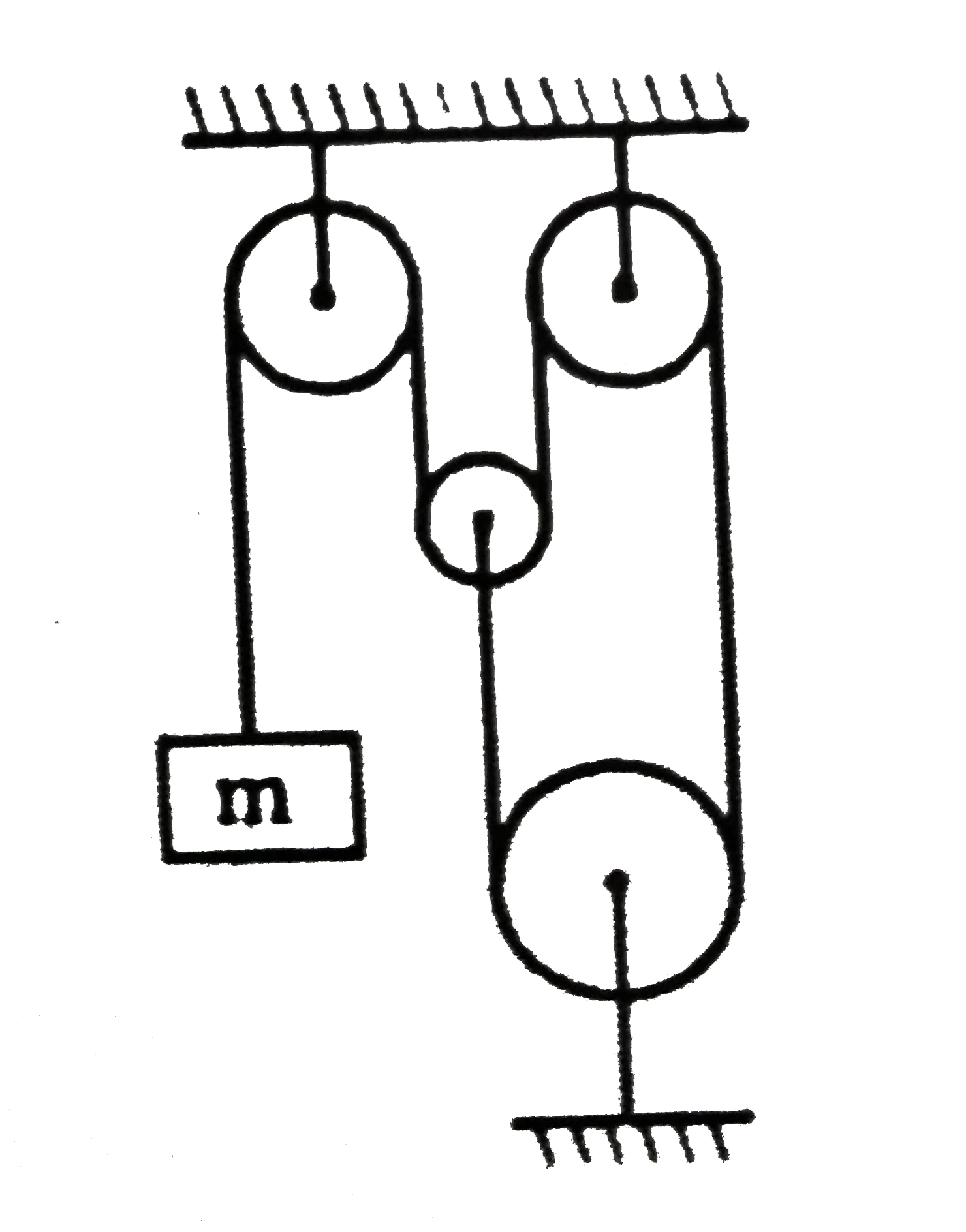
View Solution

